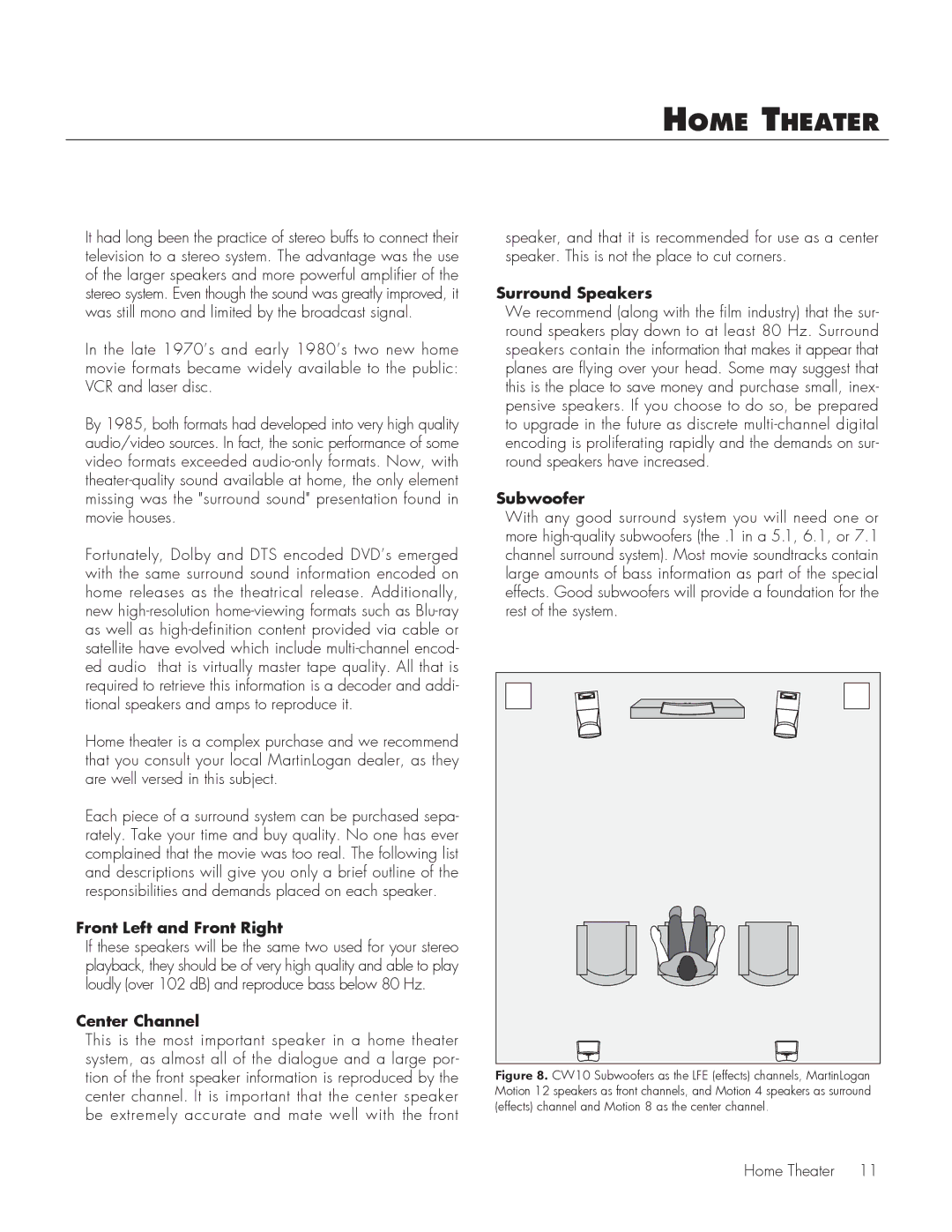CW10 specifications
The MartinLogan CW10 is a sophisticated in-wall subwoofer that redefines the boundaries of audio performance while seamlessly integrating into any living space. Designed for those who value both sound quality and aesthetic appeal, the CW10 delivers deep, impactful bass without sacrificing room aesthetics.One of the main features of the CW10 is its advanced subwoofer technology, which includes a high-performance 10-inch cone driver. This driver is engineered to reproduce low-frequency sounds with immense accuracy and power, allowing users to experience thumping bass that is both rich and controlled. The driver operates within a carefully crafted enclosure, optimizing its performance and ensuring minimal distortion, which is critical for both music and home theater applications.
The CW10 also employs MartinLogan's patented Vojtko crossover technology. This feature is integral in managing the transition between high and low frequencies, ensuring that every note and nuance is captured and delivered seamlessly. The crossover helps maintain the dynamic range and tonal balance that listeners demand, making it an excellent choice for audiophiles and casual listeners alike.
One of the primary characteristics that sets the CW10 apart is its compact and discreet design. The subwoofer is intended for in-wall installation, allowing it to blend effortlessly into wall spaces while freeing up valuable floor space. The flush mount installation maintains the room's visual integrity, making it an ideal solution for modern living environments where design is just as important as performance.
Moreover, the CW10 is equipped with an adjustable low-pass filter, allowing users to tailor the subwoofer's response to suit their specific room acoustics and personal preferences. This level of customization enhances the listening experience, ensuring that the subwoofer works harmoniously with existing speakers and other audio equipment.
The CW10 also features a durable and aesthetically pleasing grille that can be painted to match your wall color, further enhancing its ability to integrate into any home decor.
In conclusion, the MartinLogan CW10 is a feature-rich in-wall subwoofer that combines advanced audio technologies with a sleek, unobtrusive design. With its powerful driver, innovative crossover technology, and customizable settings, the CW10 is an exceptional choice for anyone looking to elevate their audio experience while maintaining the elegance of their living space.

